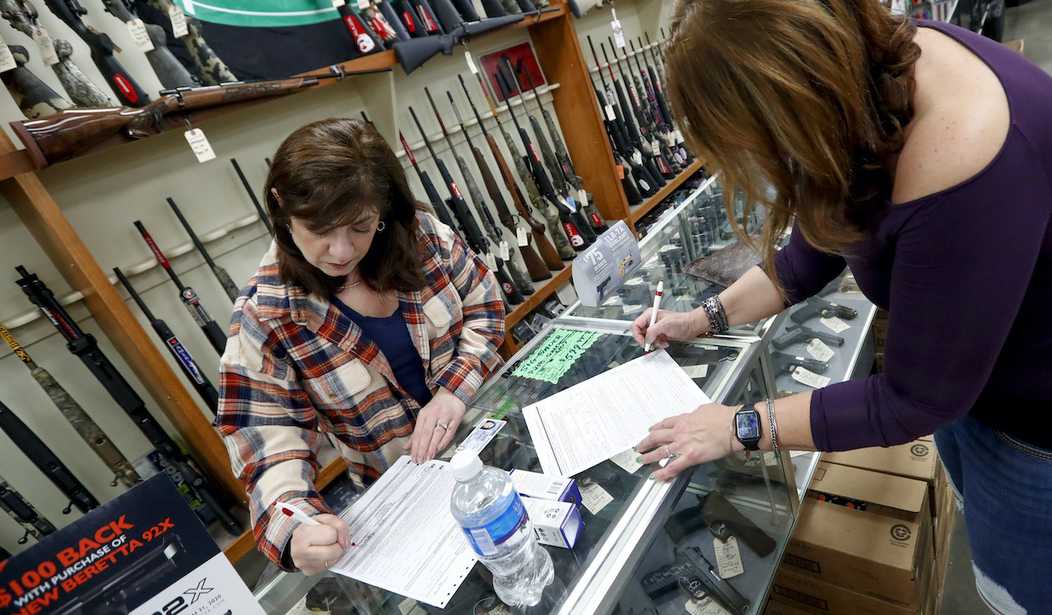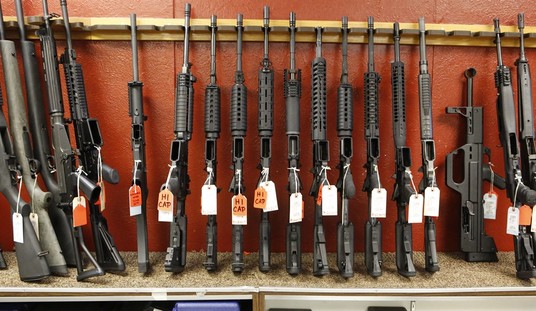The multipronged approach to undoing Massachusetts' sweeping new restrictions on lawful gun owners involves litigation as well as an attempt to put the new law to a vote of the people. The Civil Rights Coalition, which was formed to gather the signatures necessary to hold a referendum on Chapter 35 (aka "The Devil's Snare", aka "The Lawful Citizens Imprisonment Act", has until October 9th to collect at least 37,287 signatures from registered voters in order to put the referendum on the 2026 ballot. If organizers can get 49,716 valid signatures, they may also be able to put the law on hold for the next two years until voters have the chance to weigh in directly.
Toby Leary, owner of Cape Gun Works and one of the driving forces behind the signature gathering efforts, says he's "very confident" that they'll be able to get the signatures they need to keep the law on ice, even though the October 9th deadline is quickly approaching.
Leary said volunteers are "a little less than halfway" to that higher signature-gathering target. He said coalition leaders have "thought about" using paid signature-gatherers, a strategy many ballot question campaigns deploy, but think they can cross the threshold using only volunteers.
The group has not yet reported any fundraising information to state campaign finance regulators, and Leary told reporters Thursday the coalition has raised "tens of thousands of dollars towards our initial goal of $200,000."
"There's no time to sleep. We have about three weeks to get almost 50,000 signatures (total). We're well on our way to getting there," Leary said. "We really need to call awareness, because most people don't even know it happened. It literally happened under their noses by politicians that swore an oath of office and then went into their chambers and violated their oaths by proposing laws that are contrary to the Constitution."
One of those politicians is swearing that the law will remain in effect, even if Leary and other Second Amendment advocates reach that 50,000 signature threshold. Gov. Maura Healey can keep the law in place by attaching an "emergency" preamble to the bill, even though she's already signed the legislation. That's a weird quirk in Massachusetts law, and historically governors have attached those preambles when they sign bills into law, but Healey's told reporters she's adamantly opposed to allowing the law to be suspended until a vote of the people is held.
After some interbranch sniping slowed the initial rollout, the House approved its draft of the bill in October 2023 on a 120-38 vote, and the Senate approved a redraft on Feb. 1 with a 37-3 vote. The measure fell out of public view for months while a Democrat-led conference committee negotiated a final version. They filed that accord on July 17, and both branches voted to send it to Healey a day later.
Repeal supporters slammed that process as part of the problem.
"The Legislature did not do its due diligence. They were handed a bogus summary, and they voted on the worst attack on civil rights in modern U.S. history without even looking at the bill and understanding what it did," said Jim Wallace, executive director of the Gun Owners Action League.
Wallace invoked the actions of segregationist Gov. George Wallace of Alabama, who infamously blocked Black students from entering the University of Alabama, as a point of comparison for the gun law, which Democrats drafted partly in response to the U.S. Supreme Court's Bruen decision about the constitutionality of carrying firearms in public.
"This is the greatest attack on civil rights we've seen in a very, very long time. It's very reminiscent of the actions of Governor Wallace of Alabama after Brown v. Board of Education, because that's what this is: a tantrum, because the United States Supreme Court said (Massachusetts officials) were wrong on how they were treating the Second Amendment community, and they have to stop doing it," he said. "Rather than obeying the court, just like Governor Wallace did many years ago, they doubled down and made it even worse."
The resistance we've seen to the Bruen decision in blue states like Massachusetts is a 21st century version of the Massive Resistance displayed by southern Democrats in the wake of Brown v. Board of Education seventy years ago, though I think there's a more apt comparison than George Wallace's outright defiance. States like Massachusetts, New York, New Jersey, and California are claiming that their post-Bruen restrictions adhere to the Supreme Court's decision, much like the officials in Prince Edward County, Virginia did when they shut down the public schools instead of integrating and instead offered tuition grants for students to attend private schools.
In theory, there was nothing discriminatory about that decision: all students, no matter the color of their skin, were eligible to receive those vouchers and attend a private school. In reality, however, there were no private schools that would accept Black students, which meant that for several years those students were forced to attend ad hoc classes in church basements and private homes.
In 1964, ten years after Brown, the Supreme Court ruled that Prince Edward County's effort to get around the desegregation order violated the Equal Protection clause of the Fourteenth Amendment, and the county's schools were finally reopened on a desegregated basis in 1965.
Hopefully, it won't take nearly as long to undo the unconstitutional restrictions imposed by Massachusetts lawmakers in response to Bruen. Second Amendment supporters are well on their way to putting a repeal on the ballot in two years, and with the first of what's expected to be multiple lawsuits challenging various aspects of Chapter 35, there are multiple paths to restoring the rights lost under The Devil's Snare.









